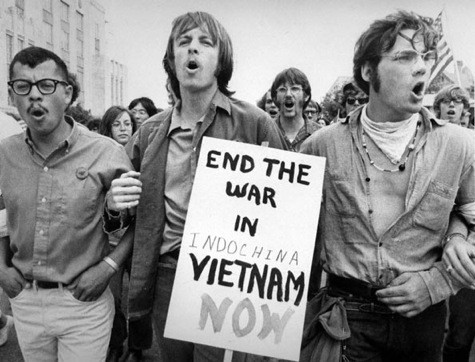
Everyone has a strong opinion about education. But the controversies are always about the same topics: testing, teachers unions, funding, merit pay, vouchers/school choice, charter schools. Is college a smart investment? Is affirmative action fair? Has political correctness supplanted the basics?
I keep waiting for someone to bring up Now. As in the study of now — what’s currently going on in the fields of politics, history, literature, mathematics, science — everything.
Can we call it Nowology?
From kindergarten through college, American education focuses obsessively on the past. No matter what you study, the topics either relate to the past or the knowledge is dated.
Since I was a history major in college, I’ll focus on that.
I’ve never understood why history is taught chronologically. A book’s opening is crucial; either you get hooked straightaway or you get bored and put it down. So how is it that textbook publishers think it makes sense to start a fourth-grade history textbook with prehistoric humans who lived 10,000 years ago? It’s tough enough for me, at age 50, to relate to our hunter-gatherer ancestors. How can a typical American 9-year-old connect intellectually to people who foraged for food (not in the fridge)?
Another problem with teaching history chronologically is that teachers rarely make it to the relevant, interesting history students might actually care about — what’s going on now. From junior through senior high, my teachers got bogged down in the battlefields of the Civil War. We never made it as far as Reconstruction, much less to the controversies of my childhood (Vietnam, Watergate, the Iran hostage crisis).
TV, radio, and newspapers — that’s where what mattered was discussed. My classmates and I had fathers who served in Vietnam. We had neighbors who’d dodged the draft. We argued over Nixon and Ford and Carter, but all that — the controversy, the drama, the Now — took place outside school.
The not-so-subliminal message sunk in: School is where you learn about old stuff. Now stuff is everywhere else.
This is, of course, exactly the opposite of how we choose to teach ourselves.
Example: pop culture. No one’s musical education begins with recordings of recreations of primitive music — simple claps or banging objects together. Most children start out listening to contemporary music — whatever they hear on Pandora, Spotify, the radio, TV, etc. Those who decide to dig further usually work backward. They listen to older works by their favorite artists. They hear a musician talk about the bands that influenced them, and they check them out. They might wind up getting into ragtime or Bach. Last. Not first.
Ditto for movies. No one starts out watching silent films.
We’re constantly worrying about whether our schools are preparing children to compete in the global marketplace. To support their calls for reform, activists point to surveys that show that Americans are woefully ignorant about basic facts such as evolution, essential geographic knowledge, such as the location of the country where U.S. troops have been fighting, killing, and dying for a decade and a half.
Sure, it would be nice if more Americans read a newspaper (or its online edition) now and then. On the other hand, a lot of this material ought to be taught in schools, and it isn’t. Day one of American history class should begin with Obama, congressional paralysis, the early jockeying for the 2016 presidential campaign, America’s clash with Russia over Ukraine, and the wars in Afghanistan and Iraq. All of these subjects naturally require digging deeper, back in time, to explain why and how what’s going on now is happening.
And it’s not just history. Studying physics at Columbia in the 1980s, no one taught us about the latest advances in cosmology and quantum mechanics — some of which, ironically, were being discovered in labs in the same buildings by the same professors who were filling our heads with obsolete material.
Nowology — better late than never.
Ted Rall’s most recent book is The Book of Obama: How We Went From Hope and Change to the Age of Revolt.